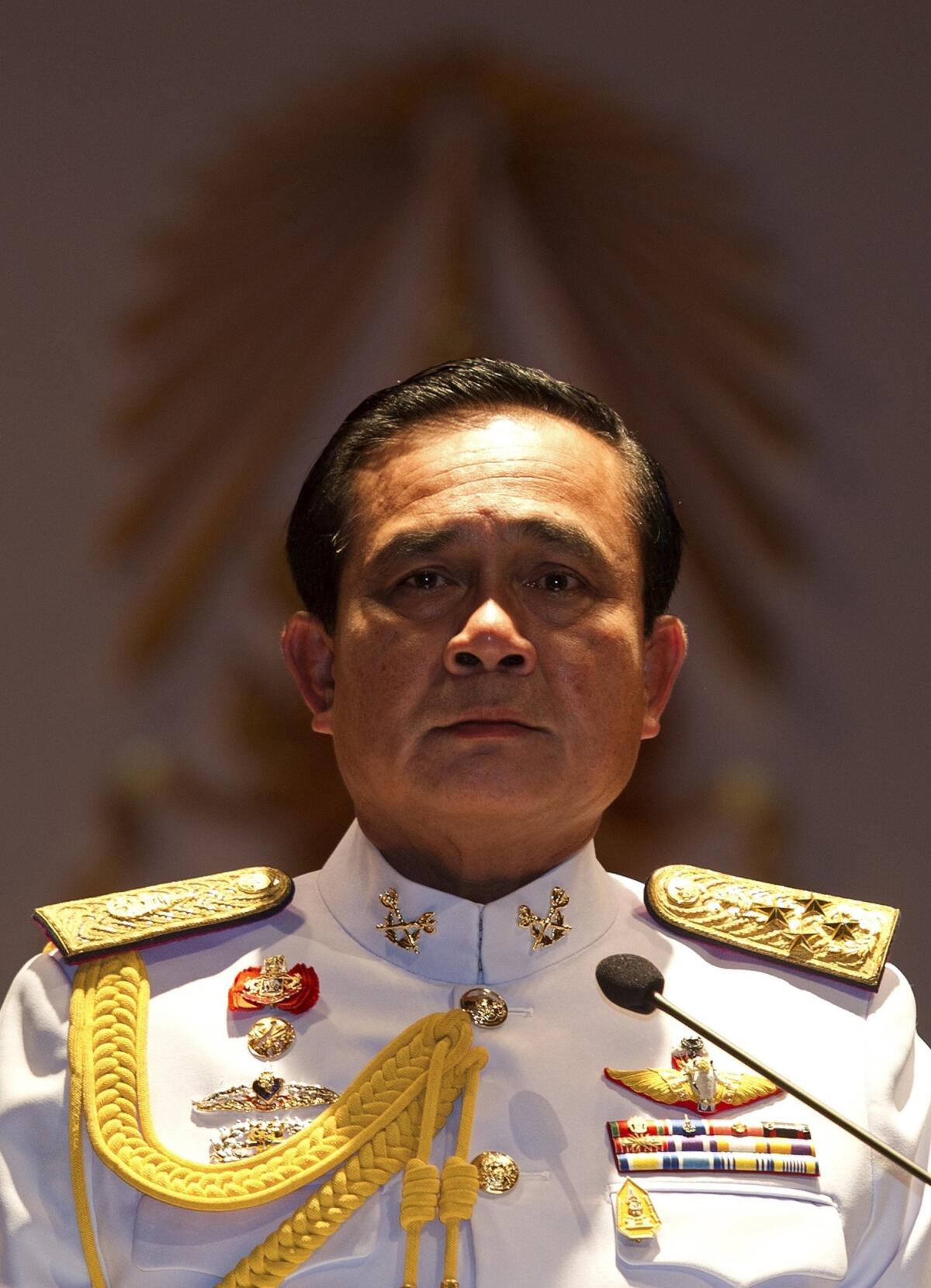Thailand ends martial law but gives prime minister sweeping powers

Thai Prime Minister Prayuth Chan-ocha during a news conference on May 26, 2014, when he retired as an army general to take on the role of junta leader.
- Share via
Thailand’s coup-installed leader said Wednesday he was taking on sweeping powers to run the country after the king approved his call to end martial law 10 months after the deposing of an elected government.
Prime Minister Prayuth Chan-ocha had appealed a day earlier for King Bhumibol Adulyadej to give the formality of endorsement to his plan to replace the military state with an emergency-rule regimen known as Article 44 of the junta-drafted interim constitution.
Article 44 allows Prayuth, as head of the so-called National Council for Peace and Order, to issue any order in the name of national security and to exercise the powers of the executive, legislative and judicial branches of government.
Under the newly claimed authority, the military may make arrests without warrant and detain people for up to seven days without charges. A ban on public assembly by five or more people, imposed under martial law, is also expected to be retained to deter protests.
Asian media have dubbed Article 44 the “dictator’s law,” as a version adopted by the leadership of previous coups has allowed rulers to carry out summary executions.
Prayuth will now be able to consolidate power “to the point that he can order anyone to do or not to do anything. He has ultimate powers now, unlimited, unchecked,” said Sunai Phasuk, senior researcher in Thailand for Human Rights Watch.
Prayuth, the former army chief of staff who retired from the military days after leading the May 22 coup, had been under pressure from Thailand’s business leaders to revoke martial law, which has cut deeply into the country’s tourism industry that generates more than 10% of Thailand’s gross domestic product.
But human rights advocates have disparaged the change from martial law to Article 44 as a superficial move to retain military control and delay any attempt at restoring democracy.
The May 22 putsch to end months of public unrest was Thailand’s 12th coup d’etat in 82 years. It was sparked by former Prime Minister Yingluck Shinawatra’s attempt to push through her Pheu Thai Party-dominated parliament an amnesty bill that would have allowed her brother, another former prime minister, to return from exile. Thaksin Shinawatra fled to the United Arab Emirates in 2008 to evade a prison sentence after his conviction on corruption charges.
Follow @cjwilliamslat for the latest international news 24/7
More to Read
Sign up for Essential California
The most important California stories and recommendations in your inbox every morning.
You may occasionally receive promotional content from the Los Angeles Times.











